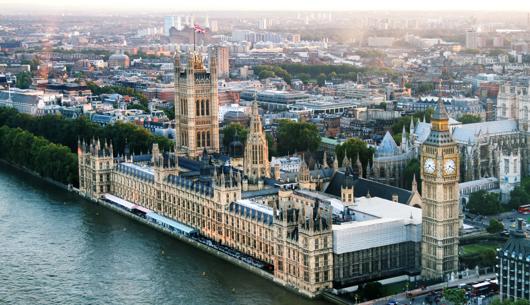Welcome to our dedicated mental health, mental capacity and deprivation of liberty newsletter, where we bring you significant updates and case law developments in these complex and compelling areas.
We've aimed to ensure that our content is not only informative but also practical, enabling you to apply the principles effectively into your everyday practice:
We welcome questions about any areas mentioned in our newsletter, as well as feedback on topics you would like us to cover.
Next mental capacity and mental health forum, 4 November
Our next mental health and capacity forum is on 4 November, 9:30am to 10:30am, focussing on recent court decisions involving patients with anorexia nervosa. Hosted by Clare Shepherd, Katie Viggers and Isma Qadir, we'll explore the interplay between mental health and mental capacity legislation and offer guidance for clinicians and in-house legal teams dealing with these difficult cases.
News
The Government's 10-Year Health Plan: What's in it for mental health?
Over the summer, the government published its long awaited 10-Year Health Plan for England. The Plan focuses on three key shifts – from hospital to community, from analogue to digital and from sickness to prevention. We reviewed the Plan to see what commitments and innovations are included in relation to mental health care.
Regarding social care, we've also looked at what the government has included in the Plan with emphasis on person-centred support.
The Assisted Dying Bill: What health and social care professionals need to know
The Terminally Ill Adults (End of Life) Bill, often referred to as the Assisted Dying Bill, is a landmark piece of legislation that was passed by the House of Commons in June 2025.
The Bill authorises terminally ill adults in England and Wales to request and receive assistance to end their own lives under specific safeguards, and has sparked considerable debate across the political spectrum. We have looked at how the current version of the Bill would function in practice.
Update on Mental Health Bill
The Mental Health Bill has completed the committee stage in the House of Commons, with the report and third reading scheduled for 14 October. It will then go to the House of Lords, who will either agree with or challenge the Commons amendments.
If there is disagreement, the Bill will move back and forth between both Houses, known as "ping pong", until consensus is reached on the wording. Only once the exact wording has been agreed can the Bill receive Royal Assent.
Deprivation of liberty
Deprivation of liberty case: Effective multi-agency collaboration
The case of Re N (A Child) (Deprivation of Liberty Orders) EWHC 1690 (Fam) concerns a young person who was initially subject to several restrictive deprivation of liberty orders.
However, following coordinated efforts by the health and social care bodies, all restrictions were lifted by N's 18th birthday in accordance with her wishes. The judge identifies elements of constructive and effective working by the statutory agencies involved, which all health and social providers can learn from.
Mental capacity
Shared Insights session on self-neglect
Over the summer, we held a Shared Insights session on the legal and practical challenges of working with adults who self-neglect, including those who hoard. In particular, we looked at the difficulties of assessing a person's capacity in the context of self-neglect.
Shared Insights session on managing children with complex needs in crisis
Shared Insights is our regular, free forum designed for health and social care professionals. Our session on 9 December 2025 will focus on managing children with complex needs in crisis.
Mental health
Revisiting court authorised treatment restrictions for severely anorexic patient
In Patricia's Father v Patricia EWCOP 30 (T3), a Court of Protection judge lifted previous court orders that had prevented forced treatment for a 25-year-old woman with severe anorexia nervosa and pathological demand avoidance. Browne Jacobson supported the applicant NHS Trust in these proceedings, which was praised by the judge for the extensive care it provided in this complex case.
Inquests: How wide should the scope be? The coroner's decision
In a recent judicial review claim relating to a mental health inquest, the High Court confirmed that the coroner has a wide discretion to set the scope of an inquest and is entitled to exclude matters, even issues relating to the care provided, if they see fit.
Spotlight on Laura Thomas
Laura Thomas, Associate
Laura is an Associate within the Browne Jacobson health advisory and inquest team, who co-hosted our mental health and capacity forum in July. Laura talks to us about her journey into mental health and capacity law, her most challenging case to date and a surprising career moment involving nuns at an inquest.
Contact

Mark Barnett
Partner
mark.barnett@brownejacobson.com
+44 (0)330 045 2515

Katie Viggers
Professional Development Lawyer
katie.viggers@brownejacobson.com
+44 (0)330 045 2157








































